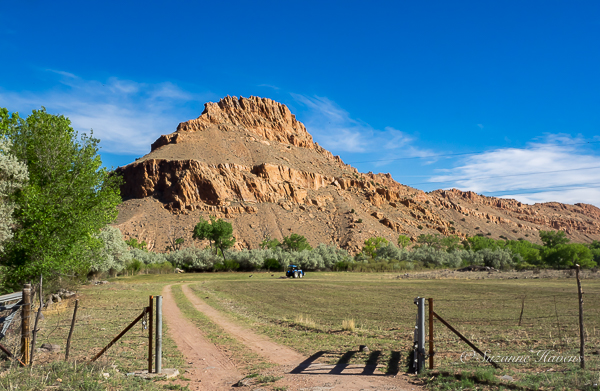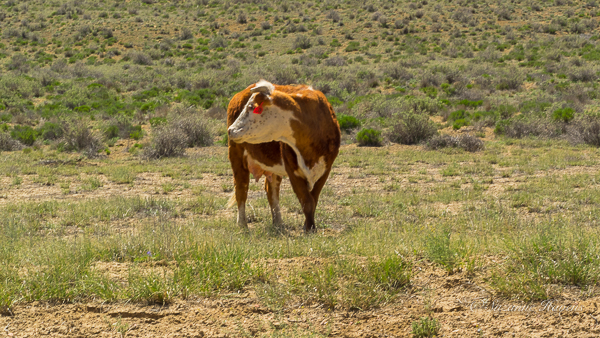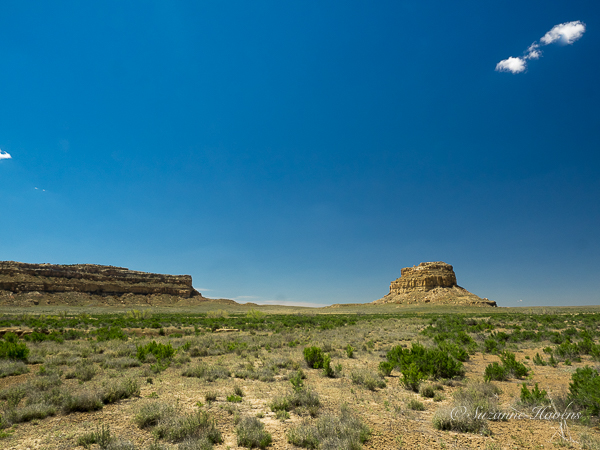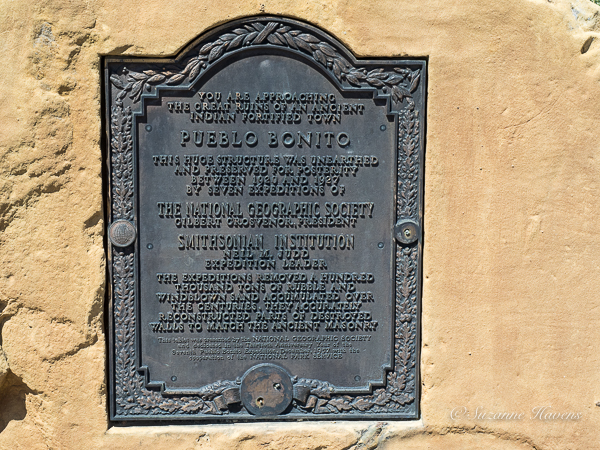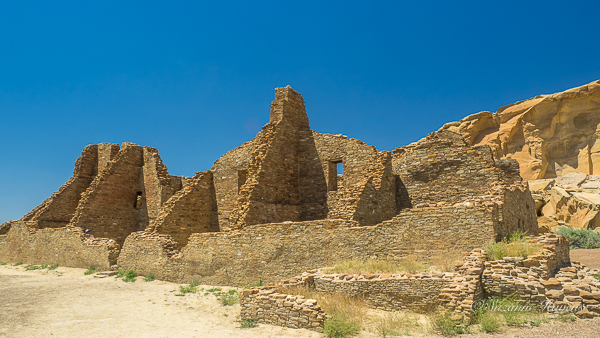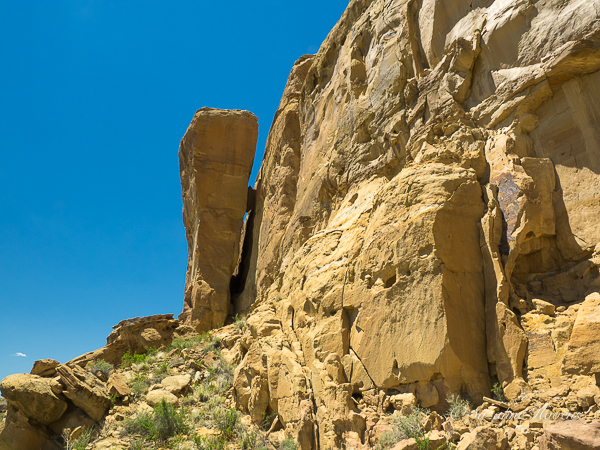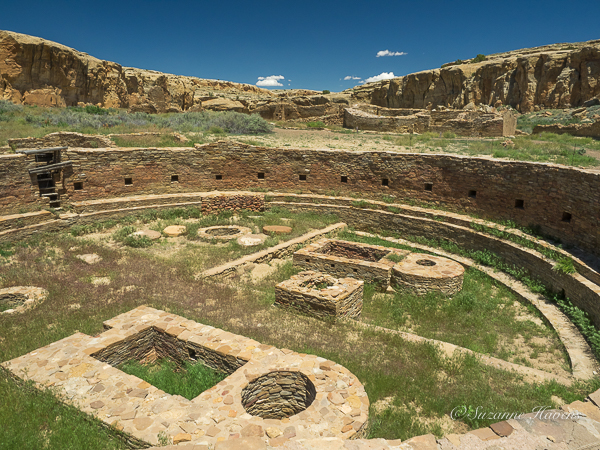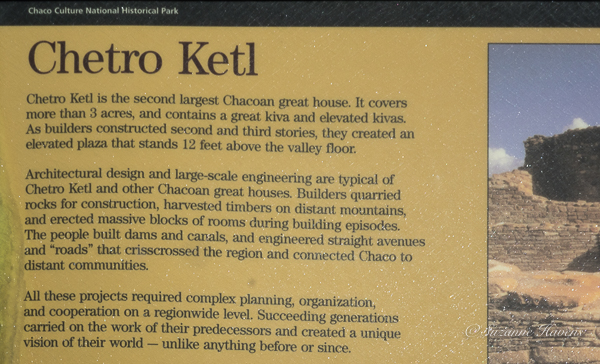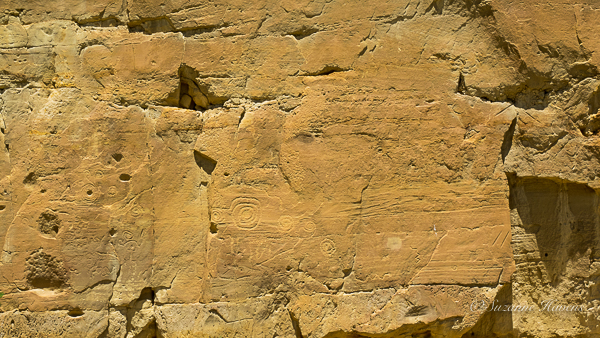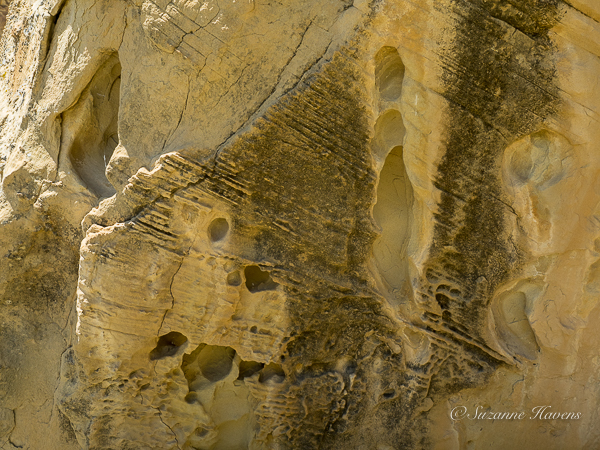The rugged lands of New Mexico demand talent and resilience to cultivate them. That is true for the Chaco culture a thousand years ago and true today with our current tools. Starting in the early 20th century significant efforts have unearthed 2,000 dwellings and restored some so that we can see the remnants of a complex community, harnessing the canyon waters to cultivate crops. Current thinking is that a prolonged drought motivated them to seek a new home, but some say this is part of a migration that brought them from Asia and took them farther south.
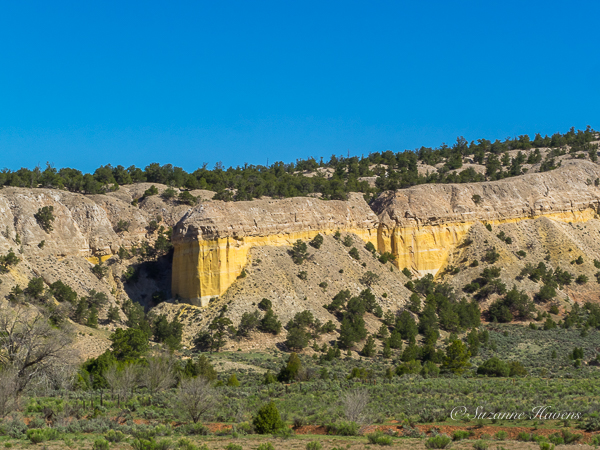
The yellow and cream colors of sediment uplifed and now eroding make a beautiful pallette with the vivid blue sky and the green foliage
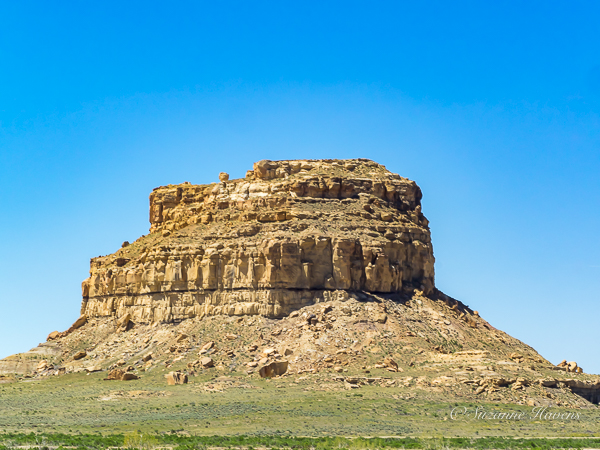
Fajada Butte gets its name by its banding of black coal between the Cliff House Sandstone on top and the older and softer Menefee Formation below, which erodes and causes large bolders to collapse
